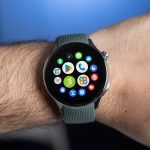Some 270 million Americans received at least one COVID-19 vaccine dose. Tens of thousands have since claimed they suffered a COVID vaccine injury, ranging from minor side effects to severe adverse reactions. Around 9,000 of those people have requested compensation through the only legal avenue available to them—the federal government’s Countermeasures Injury Compensation Program (CICP).
To date, the CICP has paid only $30,855 to just eight claimants. Another 1,588 people have had their claims turned down—making for a 98 percent rejection rate. Thousands more have been left waiting with no response. If their claims are also rejected by the program, they have no other means of ever getting compensation.
Typically, someone who’s been injured by a product, medical or otherwise, would be within his rights to sue the manufacturer in a state court. Since the 1980s, federal liability protections prevent people from suing vaccine makers.
But under the decades-old National Vaccine Injury Compensation Program (VICP), people claiming an injury from a non-COVID vaccine are given an alternative to standard civil litigation. Injured patients instead sue the federal government in special vaccine courts, where both sides have lawyers, a special master (judge) decides claims, and people can appeal rejected compensation requests to higher courts. VICP petitioners need only show a preponderance of the evidence that they were injured by a vaccine—a relatively low burden of proof. The VICP approves about half of all claims and pays out $200 million a year (all funded by an excise tax levied on vaccine doses).
The CICP is nothing like this. The program has its origins in a piece of war on terror legislation intended to create liability protections for makers of novel, emergency countermeasures to bioweapon attacks and the like.
It’s an administrative process, meaning patients’ claims are decided by a federal bureaucrat, not a neutral judge. Claimants have no right to a lawyer and no right to appeal to a higher court. They must also show by “compelling, reliable, valid, medical, and scientific evidence” that their injury was caused by a COVID vaccine.
That’s an exceedingly high burden of proof for vaccines that were approved without the typical years of study and testing, says Katharine Van Tassel, a law professor at Case Western Reserve School of Law. “We did not have very much time to study [COVID] vaccines, so we know the risk of injury was higher,” Van Tassel explains.
All these features help explain the CICP’s high rejection rates.
Advocates for the COVID vaccine injured are asking, through lawsuits and bills in Congress, to move them out of a dysfunctional CICP program and into the standard VICP program, where they stand a chance of actually getting compensation for their injuries.
The post COVID Vaccine Injuries Deserve a Day in Court appeared first on Reason.com.






